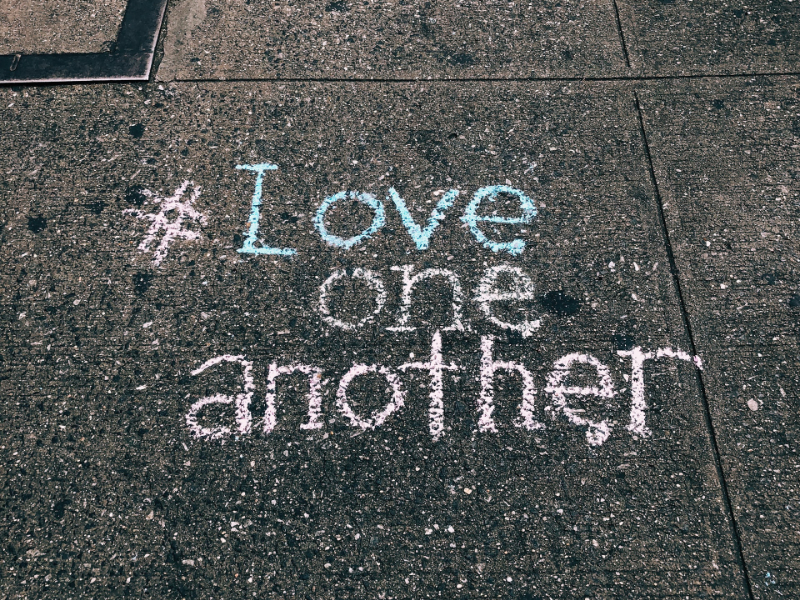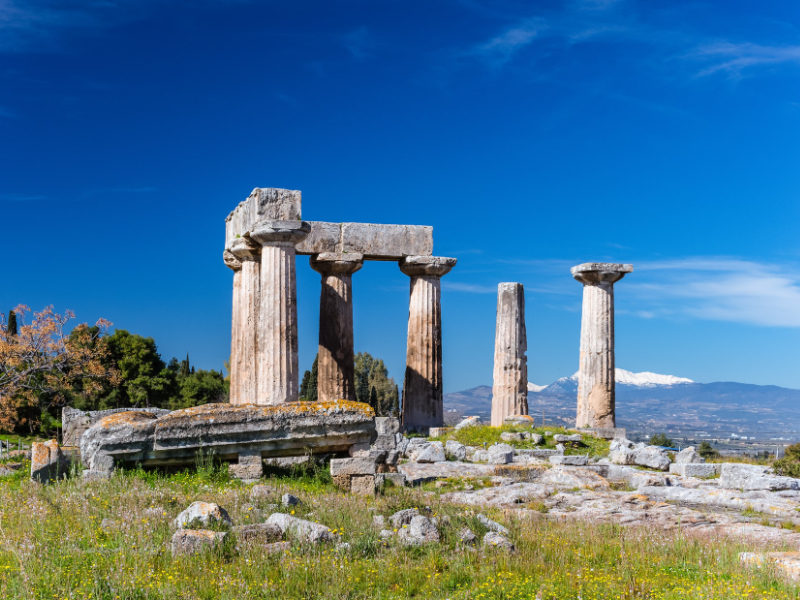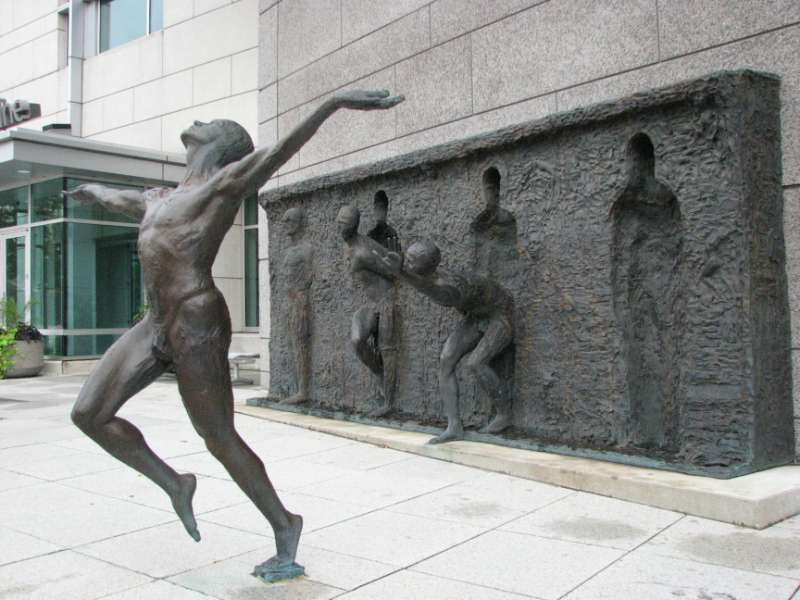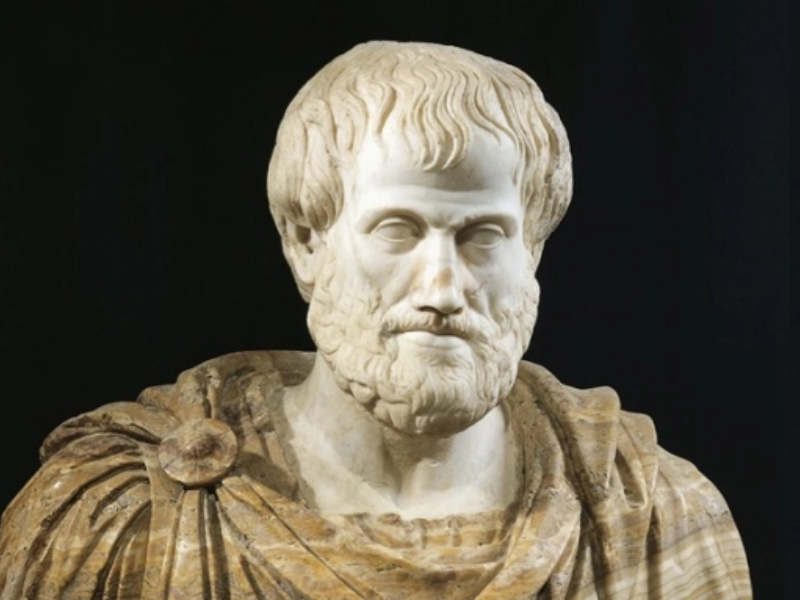Discover Your Spiritual Impulses
– Breathing Life Into Morality –

“Children, love one another.” — John the Evangelist
If only it were this easy. If only we could hear these words and move forward with a pure heart.
Unfortunately, morality can’t be established by words alone. It requires us to look into ourselves. It requires a direct understanding of our inner motivations, intentions, and behaviors. So, let’s take a look.
What is it that shapes your very being in this world? What are those inner forces that move you with their own power?
Only after you have seen and felt these impulses directly will you be able to understand and deepen your relationship with moral concepts. Only then will moral precepts carry any weight.
So, really, what is it that moves you through the world? Are you aware of your moral impulses? Which impulses do you typically act on? When was the last time you looked, not to your friends and neighbors, not to your scriptures and prophets, not to the laws and regulations of your state, but to your own heart to understand which foot to put in front of the next? How well do you know your spiritual impulses, your morality?
If Love doesn’t flow naturally from your entire being, if you still find yourself acting from the opinions of the masses or from your baser desires, aversions, and self-concerns, then, like me, you’ve got work to do.
Travel with me inward to the depths of our being, to the heart of our soul, and let’s work outward until a boundless Love spills out and nourishes the world around and within us.

A History & Evolution of Spiritual Impulses
“You are what your deep, driving desire is. As your desire is, so is your will. As your will is, so is your deed. As your deed is, so is your destiny.” — The Brihadaranyaka Upanishad
Devotion & Courage
If we travel the spiritual road back to ancient India, to some of the earliest known buds of spiritual life, we find an impulse of devotion or surrender to the Spirit, a kind of sinking into one’s Self – a life lived in renunciation, introspection, and quietude, listening inward to the spirit while ignoring almost entirely the outer physical world.
And if we follow the spiritual road to the ancient inhabitants of Greece, we will find a related impulse, though with a different flavor: the impulse of courage or fortitude— which we may describe as an expression of one’s inner life, of one’s personality, of one’s innermost intentions, onto the outer world. This is captured in the Greek word Meraki — to put something of yourself, of your inner life, of the spirit, into your art or work; to do or create something with soul.

Where are these impulses — devotion and courage — in our modern world? Do they appear in your own life? Are you devoted to the spirit? Do you generally listen inward or are you more often entrenched in the outer world, consuming pop-culture, movies, shows, and political media, being mentally and spiritually passive?
Do you find yourself painting your inner life, your innermost intentions, your deepest expressions onto the world? Onto other people? Or do you fall in line with the masses, and simply do what everyone else is doing or expects you to do, cut and formed by the same cultural cookie-cutter as everyone else?
I know I certainly can do better. I envy my dearest Love’s courage —Deb Wood. I marvel at her standing up on stage, spilling her heart and deepest feelings out into the world through her spoken poetry.
Equality & Duty
In ancient India around the fifth century B.C., the Buddha followed his own impulse to eliminate suffering in the world and discovered not only that each human can be free from dukkha — from suffering, discontent, agitation, resistance, unease. But also that, behind each of our transitory experiences, is the divine — the unborn and unformed, that without shape or color, beginning or end, that which is no thing but which holds everything, the boundless open space of experience.
Early in Christianity, the Buddha’s wonderful teaching of divine oneness, of human equality and compassion, had a particular impact on the people of Europe, where on the shores of the Black Sea a school was founded that was led by people who had adopted this Buddhist teaching.
The teachers in this school, though, illuminated the Buddha’s teaching with a new light because they had also absorbed the Christ impulse — the impulse that, within each of us, is a drop from that Divine Ocean, an Ego made in God’s image, unborn and unformed, and that through the Ego God’s will can be done.
When one discovers the Christ Impulse within one’s self, it generally expresses itself as a duty to humanity to bring about the Cosmos’ most sincere aim: to Create ans share freely love and understanding through your own divine you-ness, through your own unique individuality and impulses.
“We are thinking the evolution of the gods.” — Rudolf Steiner
Have you discovered the divinity within you? If so, how does it shape your behaviors, your relationships, and your being in the world? Does it make you more compassionate? Have you discovered your own unique qualities — your own you-ness? How does this understanding of you shape your morality?

Faith & Hope
When you think of a bad person, is that person — that person who was once a small child — really bad? Or did things like fear and trauma distort his original goodness?
A faith in people’s foundational goodness is an essential impulse for those on the spiritual path. Because, a person who has faith in the goodness of each person and the love that stems from this faith generally finds in herself hope — the hope that every soul, no matter how far it has fallen, may find its way back to its goodness, to its divine wholeness, to Love.
I can’t tell you how grateful I am, personally, for those people in my life who have kept their faith in me – in my goodness. Their patience, humility, and faith gave me the space I needed to explore the world and my experience, which, for me, meant wandering off the path occasionally, before I could find confidence in my goodness, a goodness built from an understanding of my true Self, my Wholeness.
* * *
What’s your attitude toward other people? Do you find the bad and the ugly in everyone you encounter? Or is it your impulse seek their beauty, to believe in their original goodness, even if its seeds need to be watered, cared for, and attended to? With this conviction in people’s goodness, do you find yourself acting with more patience and compassion?
Love
Francis of Assisi felt faith and hope countless times during his initiation into the Colchian Mysteries by the Black Sea. In his life, though, he preached very little of them, but instead was an embodiment of them. Faith and hope appeared in him as a living symbol before the world.
But what lived deeper in Francis of Assisi — what he embodied most — was that foundation on which these other two impulses rest: that is, Love. Without Love, faith and hope don’t work.
Love stands in the center of all things. It is the perimeter of all things. And it fills all spaces between. It is the beginning, the aim, and the end that never ends. It is the all-encompassing glue, the ever-lasting embrace, the force that moves the moral development of humanity toward, through, and around the Divine. Love is synonymous with the Divine — with God, the Cosmos, the Word, the Truth, the Dhamma, or whatever else you wanna call it.
Early in his life, it seems that Francis had a strong impulse of courage and fortitude. And together with the Christ Impulse, he seemed to transform himself into an active and effective Love, into Charity, into the Spirit of Selflessness.
Like Jesus, love spilled out of Francis’s soul and healed those around him. He had no self-concern or fear of his own death or sickness, but instead was compelled to bring peace, love, and happiness to his fellow men.

Interest & Understanding
What allows you to experience the world? What allows you to engage people, things, and feelings instead of passing them by unknowingly? It is our interest, our wonder, our marvel and awe in things.
You can wonder. Let me say it again. You can wonder. How often do you take this miraculous fact for granted?
Our lives are never guided better than when we take a genuine interest in the world. Say we have a kid in front of us. What is required to devote ourselves to this kid? To have deep compassion towards her? What is required for us to truly love this child? We must take an interest in her.
When we extend our interests with sincerity, when we try truly to understand people, creatures, and things in the world, many of our inner forces and faculties will be called forward to help us engage and act effectively from and out of love. When we take an interest in someone, when we try to understand him, our deepest compassion will be brought forward.
Moral progress isn’t made by preaching universal love, then. It is made by extending our interests further so that we may increasingly understand each other and the world in which we are each connected. It is this understanding, this genuine interest, that calls forth from the soul good moral conduct.
Finding Harmony | Cold Apathy vs. Blind Passion
“Thou must find the mean, so that through thy deeds thou dost not lose thyself to the world, nor let the world lose thee.” — Rudolf Steiner
There is no unique and fixed goodness to strive for. If there was, we could all just march rigidly through life. But life isn’t like this. It’s fluid and changing. It lives and breathes. The spirit of goodness, then, takes on various shapes and colors. It learns and grows and evolves.
And it often walks on a razor’s edge, prone to fall on each side. Either (1) we become lost to the world — the world seizes and overpowers us — as is the case with reckless passion, or (2) the world becomes lost to us because we harden in our egos, as is the case with pride, cowardice, laziness, and apathy.
It’s important, then, to find balance between these two extremes. When we throw ourselves immediately and fully into the arms of everything, this isn’t genuine interest. It’s a reckless and wanton loss of self. And, on the other hand, when we close ourselves off to everyone and everything, we lose god’s full grace and beauty. If we are to be in the world, as we all are, it’s important that we remain open to and interested in all that is around us. We can’t shut ourselves off and hide in pride, cowardice, laziness, or apathy.

What are your genuine interests — in the inner and outer worlds? Where is your wonder? Are you interested in the miracle of your own being? Do you see the endless mystery that is reflected in you, in others, and in the world around you?
Conclusion
What would happen if you surrendered yourself to silence and stillness, to the spirit? What would happen if you lived with courage, if you painted your innermost intentions onto the world? What would happen if you let a genuine and active interest, not mindless passivity, guide your being in this world? What would it feel like to find — to live from — the unbounded love that sits at the heart of your soul.
“Verily I say unto you, inasmuch as ye have done it unto one of these my brethren, ye have done it unto me.” — Jesus
Please, I invite you to learn to approach people with a genuine interest so that you can understand them – understand them in all their differences, their race, sex, gender, color, nationality, beliefs, worldview, and in their own unique individuality.
What would you be able to give others with this understanding? How would this make you feel?
Perhaps start by understanding and developing yourself. It’s not egoism to develop yourself. When you develop yourself, you will have more to give. Don’t neglect your own development, don’t withdraw your power to improve the world. Develop yourself, and develop the world! Let Love be free.
“To know thyself is the beginning of wisdom.” — Socrates
More Articles
“Poetic Imagination”
I hope at least once in your life you’ve seen the Milky Way. The brushstroke of glimmering white light that cuts through the heavens is breathtaking. And to imagine, before all the light and carbon…
“Carving Knowledge from Our Imaginations”
Every civilization throughout history has created a dogmatic school whose main task is to pass on the doctrine of its founder intact to each generation. In the rare…
“Failures of Ultimate Explanation”
The earliest Greek philosophers didn’t really ask ‘what is?’ questions. Rather than quibble over the meaning of words, they tried to solve specific problems by creating bold explanatory theories…
“Plato’s Moral Tyranny”
Only you, the individual, can decide whether a behavior, norm, or institution is right or wrong. It is your burden and yours alone. You can’t shift it to god, nature, history, or even to society, because whatever…






